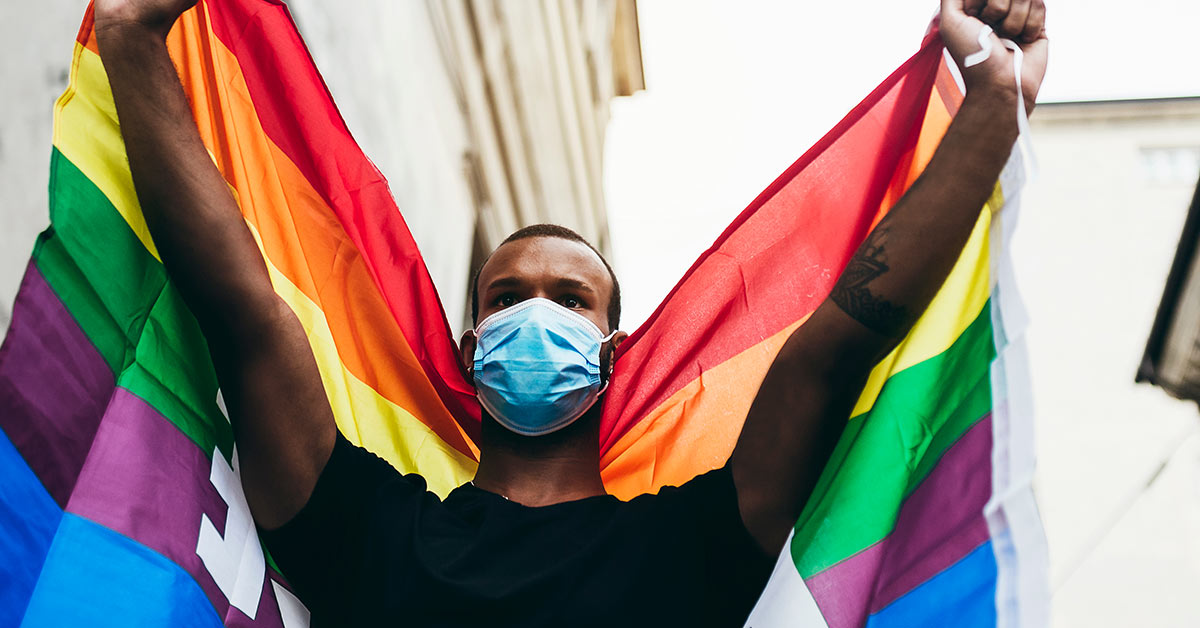Opinion | Would I be me, if I wasn’t gay?

Motlatsi Motseoile writes about how being gay indelibly shaped who he is (Stock photo)
It’s a question I had never pondered before, but recently I thought: Would I still be me if I wasn’t gay?
South Africa will celebrate 27 years of post-liberation on the 27th of April. Freedom Month calls for us to reflect on what liberation, democracy and South Africa as it is today mean for us.
For me, it’s a celebration of the freedoms fought for and won over the years. From Ruth Mompati saying that the ANC cannot concern itself with the issue of gay rights, to Thabo Mbeki stating that we cannot be a people wanting to regulate what consenting adults do in the privacy of their bedrooms, to Simon Nkoli becoming the face of the Black gay rights movement of the early 90s, to the case that resulted in the removal of sodomy as a crime, and the subsequent cases ultimately winning us ‘marriage equality’.
If I can borrow from a friend’s book title and twist it to ask “what is freedom to me?” My freedom in South Africa post-94 is the ability to be a gay man who can claim full rights and protections and fight for more when there are gaps and shortfalls.
Growing up being bullied, I was driven to question my worth in this world because Christianity affirmed that being who I was was so wrong that I would end up in the bowels of hell. Having the media publish news of violence set a fear of people and spaces in me, creating a social awkwardness that was deeply uncomfortable. And of, course, the families that didn’t understand and sometimes repeated the slurs and hate. All this led me to became a rebel with a cause quite early on.
My cause was to prove to Christianity that I was indeed worthy of God’s love, to show my bullies (yes, there was more than one) that I was deserving of respect and to get onto media platforms and assert that we – myself and others like me – deserve to be in social and other spaces without the fear of being violated.
It is a heavy burden to carry as a child but it is one that I had no other option but to take on as the wins from this mission would not just be to my personal benefit but also to the benefit of others like me. The strategy was simple; to be heard, respected and afforded the space to exist, breath and win this battle. That meant that I had no choice but to be excellent.
Many LGBTIQ people internalise excellence as a means to gain respect, to be safer from violence and to show the world that we deserve the rights and freedoms that the Bev Ditsies and Simon Nkolis struggled, bled and even died for.
And today we are still fighting to be respected, heard, seen and protected by the agencies tasked with this duty; 27 years since the first democratic vote.
Would I have taken on this cause if I was just a straight boy? I don’t think so. Would I have been driven to speak up for the protection of the marginalised, even if it meant exposing myself to violence and vitriol? I definitely would not have.
Would I then have been propelled to become an ‘excellent’ and ‘exemplary’ person had I been one guaranteed safeguards and pathways to success because I was inclined to fall in love with and have sex with the opposite sex? Probably not. It goes without saying that success and excellence are not automatic just because one is a cisgender heterosexual man, but the journey there is undoubtedly made easier by this identifier.
As queer people, we still struggle to gain full access to the freedoms and basic rights afforded to us in the Constitution; health, education, safety, housing, freedom of trade, and so on. The list goes on. And if anyone were to ask why this is the case, it is because we are gay, we are lesbian, we are bisexual, we are intersex, we are transgender and we are queer.
So, would I choose to fight this exhausting battle if I was not oppressed from infancy to adulthood because of my perceived and later professed sexual orientation? Hell no.
Today I step into spaces and I declare, quite proudly, that I am gay, that I have dedicated some of my best years to engaging in LGBTIQ+ rights movement work and that I will continue to do so. I do this even when I am afraid of what will be thought of me, if it may result in an opportunity not being granted or if it may expose me to ridicule and the occasional ‘gay joke’.
I do it because I am ready to stand up to the bullies. Because I do not wish for this to be an experience that endures and repeats; especially for other young LGBTIQ+ identifying people.
So what does Freedom Month mean to me? That the battle has been won but the war is far from over.
Great opinion article, resonating with me, I’ve asked myself that question often, surrounded by conservative Christian family showing no interest in my lifestyle. But find it easy to criticize.